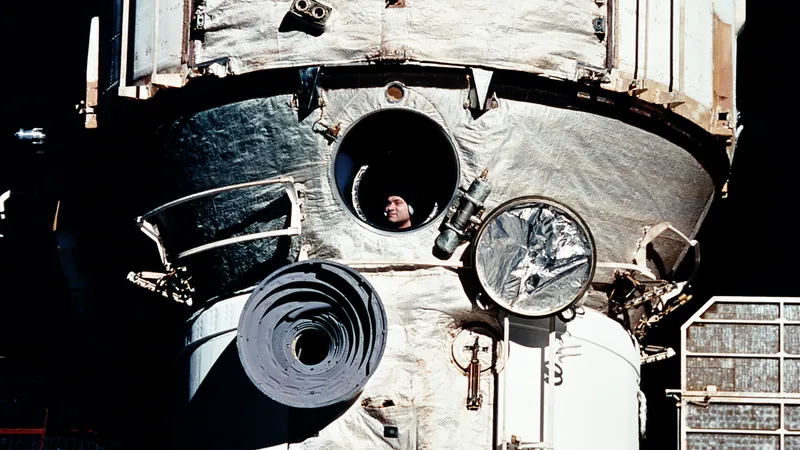
Russian Cosmonaut's Historic 14-Month Space Voyage Leaves Scientists Astonished by Health Outcomes
2025-03-18
Author: Chun
The Man Behind the Record: Valeri Polyakov
Born in 1942 in Tula, Soviet Russia, Polyakov became a celebrated figure in his country, known not only for his remarkable space missions but also as a trained physician specializing in space medicine. His first voyage to space came in 1988, where he spent 240 days on the Mir space station—a record in itself at the time. However, it was his second mission that etched his name in the annals of space history, as he returned to Mir for an astonishing 437-day expedition, totaling 14 months and 17 days in space.
Initially scheduled for a 16-month stay, his mission was cut short due to logistical constraints and a scheduled NASA visit. During his time in space, Polyakov circled Earth more than 7,000 times, gathering invaluable data for future space exploration.
Health Assessment After the Ultimate Test in Zero Gravity
Upon his return to Earth in March 1995, Valeri Polyakov underwent extensive health assessments, effectively becoming a primary subject for researchers eager to understand the implications of long-term space travel. This interest is topical once again, as scientists now scrutinize how prolonged exposure to microgravity affects astronauts like Williams and Wilmore.
Polyakov's meticulous preparation, which included two hours of daily exercise, paid off significantly. Researchers were astonished to find no significant cognitive decline associated with such an extensive period in space. Physically, Polyakov actually grew two and a half inches during his journey due to the elongation of his spine in the absence of gravitational forces. However, this newfound height came with its own challenges during his return, as the shuttle's seating space was originally designed for him at his standard height.
After landing, Polyakov famously exited his spacecraft, settled into a nearby chair, and celebrated with a cigarette and a glass of brandy, encapsulating the bittersweet end of an extraordinary journey. “That was pretty much the goal of the flight. I had to show that it is possible to preserve your ability to function after being in space for such a long time,” he stated at the time.
Mental and Physical Resilience: A Scientific Perspective
Despite initial adjustments, a 1998 study reported Polyakov's impressive stability both mentally and physically. While he experienced some stress and mood fluctuations during the first weeks in space and upon re-entry to Earth's environment, he quickly returned to baseline levels of cognitive and emotional function. The study assessed pre-flight, in-flight, post-flight, and follow-up measures, highlighting that the initial phases of high-stress adjustment are critical after long missions.
Polyakov's findings have provided invaluable insights that dispel fears regarding long-term space travel. His successful navigation of the psychological landscape and physical challenges posed by such an extended mission has paved the way for future long-duration space exploration, including missions to Mars and beyond.
Conclusion
Passing away at the age of 80 in 2022, Valeri Polyakov's legacy continues to inspire researchers and space agencies worldwide, proving that the human body can not only endure the rigors of space travel but flourish, potentially setting the stage for thrilling new adventures in the cosmos. As current astronauts prepare for their space flights, they carry with them the wisdom and experiences of pioneers like Polyakov, whose contributions extend far beyond his time among the stars.


 Brasil (PT)
Brasil (PT)
 Canada (EN)
Canada (EN)
 Chile (ES)
Chile (ES)
 Česko (CS)
Česko (CS)
 대한민국 (KO)
대한민국 (KO)
 España (ES)
España (ES)
 France (FR)
France (FR)
 Hong Kong (EN)
Hong Kong (EN)
 Italia (IT)
Italia (IT)
 日本 (JA)
日本 (JA)
 Magyarország (HU)
Magyarország (HU)
 Norge (NO)
Norge (NO)
 Polska (PL)
Polska (PL)
 Schweiz (DE)
Schweiz (DE)
 Singapore (EN)
Singapore (EN)
 Sverige (SV)
Sverige (SV)
 Suomi (FI)
Suomi (FI)
 Türkiye (TR)
Türkiye (TR)
 الإمارات العربية المتحدة (AR)
الإمارات العربية المتحدة (AR)